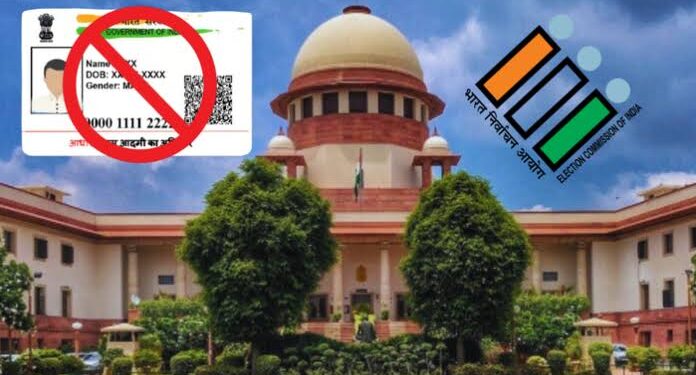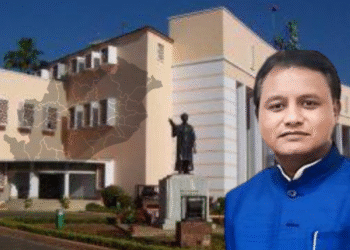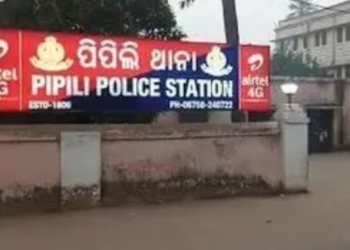In a significant development, the Election Commission of India (ECI) has told the Supreme Court that Aadhaar cards, voter IDs (EPIC), and ration cards do not constitute proof of Indian citizenship and therefore cannot be treated as standalone documents for inclusion in the electoral rolls.
This assertion came through a detailed affidavit submitted in response to petitions filed by Opposition MPs and civil society organisations, challenging the legality and timing of the Special Intensive Revision (SIR) of electoral rolls currently underway in Bihar.
What the ECI Said: Key Takeaways from the Affidavit
-
Constitutional Powers:
The ECI invoked Articles 324 and 326 of the Constitution, along with Sections 16 and 19 of the Representation of the People Act, 1950, to assert its authority to determine voter eligibility, including scrutiny of citizenship status. -
No Proof of Citizenship ≠ Loss of Citizenship:
The commission clarified that failing to prove citizenship for voter registration does not imply cancellation of citizenship. It’s about voter eligibility, not nationality status. -
Rejection of Aadhaar, Ration Card, and EPIC as Proofs:
-
Aadhaar: Merely an identity proof, not a citizenship proof.
-
Ration Card: Prone to forgery and duplication.
-
EPIC: A by-product of past voter rolls and not valid for the “de novo” revision of current lists.
-
-
Document List Is Not Final:
The affidavit clarified that the list of 11 acceptable documents is “illustrative, not exhaustive”, and Electoral Registration Officers (EROs) have the discretion to accept equivalent or supporting documents.
Backdrop: Why the Issue Reached the Supreme Court
The ECI’s ongoing SIR in Bihar has drawn criticism for potentially leading to mass disenfranchisement, especially among migrants, the poor, and marginalised groups who may struggle to produce documentation.
Petitioners include prominent figures such as Manoj Jha (RJD), KC Venugopal (Congress), Mahua Moitra (TMC), and NGOs like the Association for Democratic Reforms (ADR). They argue that the exercise is being rushed, is ill-timed ahead of Bihar elections, and that the ECI lacks the legal authority to demand citizenship proof — a power they claim lies solely with the central government under the Citizenship Act, 1955.
Supreme Court’s Position and Next Hearing
On July 10, the Supreme Court agreed to examine the validity and constitutionality of SIR, urging that draft electoral rolls not be finalised until further orders. The next hearing is set for July 28.
The Court had also asked the ECI to consider whether Aadhaar, EPIC, and ration cards could be provisionally accepted as voter eligibility documents — a suggestion the ECI appears to have rejected.
ECI Defends the SIR Process
-
High Coverage Rate:
The ECI reported that as of July 18, it had received forms from over 7.11 crore voters, covering over 90% of Bihar’s 7.9 crore electorate. Including deceased and duplicate entries, coverage stood at 94.68%. -
Checks and Balances:
The poll panel assured that no voter will be deleted without due process, and natural justice principles would be followed. -
Broad Political Support Claimed:
Interestingly, the ECI stated that “all political parties had appreciated and supported” the exercise, countering the Opposition’s stance in court.
What’s at Stake
The case has reignited the debate on voter rights, citizenship verification, and the balance of powers between the ECI and the central government. It also puts the spotlight on the tension between administrative reforms and electoral inclusivity — especially ahead of key elections in Bihar and beyond.
If the Supreme Court upholds the ECI’s stance, it could reshape the future of voter registration practices across India, with possible nationwide implications.





























